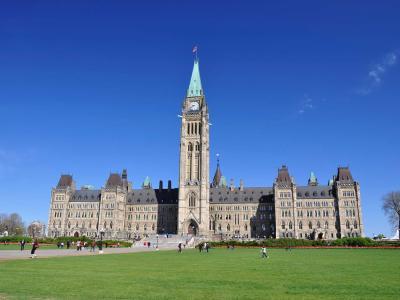When it comes to the issues facing Manitoba in this provincial election, residents are most likely to be concerned about three things – crime in their communities, the state of health care and poverty/homelessness. While these three stand out as Manitobans’ main concerns, some of the other top issues raised by at least one in ten Manitobans ahead of the Oct. 3 election include the rising cost of living, drugs and addiction issues and the cost and availability of housing. The condition of infrastructure like roads and bridges and the overall state of the economy are also mentioned by slightly fewer than one in ten Manitobans.
Crime and poverty are much more of a pressing concern among those living in Winnipeg, whereas rural and northern Manitobans are slightly more likely to be concerned about the rising cost of living. Concern about health care is consistent throughout the province. Meanwhile, younger adults are more likely to be concerned about poverty and the escalating cost of living (including housing), whereas older Manitobans are more likely to believe the state of health care and crime in their communities is their biggest concern.
The top issues also vary significantly by party preference, which perhaps helps explain why the provincial parties and their leaders have been focusing on different issues during campaign-related announcements. Not surprisingly, NDP supporters are much more likely to point to health care as the crowning issue, with a near-equal proportion of those planning to vote for the NDP raising poverty and homeless as their biggest worry. PC supporters, on the other hand, are most concerned about crime and are more likely than supporters of other parties to identify the cost of living as a top issue. PC voters are also much less concerned about health care compared to those who plan to cast a ballot for the NDP or Liberals.
Assessing the Parties/Leaders on the Issues
Manitobans are most likely to view the NDP and its leader Wab Kinew as being best suited to address three key social issues: improving the health care system, helping people with addictions and mental health issues, and improving the education system. Manitobans are also slightly more likely to believe Kinew and the NDP will do the best job of helping Manitobans deal with the rising cost of living compared to those who think Heather Stefanson and the PCs are best suited to address this challenge.
The parties and their two leaders are tied on the question of who will do the best job of addressing crime and public safety. Manitobans are most likely to indicate the PCs and Heather Stefanson will do a better job of attracting jobs and investment to Manitoba.
When it comes to dealing with climate change, one in five Manitobans each say Kinew and Green Party leader Janine Gibson will do the best job, with one in ten each believing Stefanson and the PCs or the Manitoba Liberals under Dougald Lamont will be best suited to solve this problem. Importantly, nearly four in ten either think none of the parties can address this issue effectively, or are unsure.
The disadvantage for Stefanson and the PCs is best illustrated among those who voted PC in 2019 and are either not supporting this party today or are undecided. These voters are significantly more likely to see the NDP under Wab Kinew as being best positioned to address most of these issues, with one in ten or fewer indicating Heather Stefanson and the PCs are best suited to deal with these matters. Again, the only issue the public broadly regards the PCs being better positioned to address is attracting jobs and investment to Manitoba.
About the Probe Research Omnibus
For more than two decades, Probe Research has undertaken quarterly omnibus surveys of random and representative samples of Manitoba adults. These scientific telephone surveys have provided strategic and proprietary insights to hundreds of public, private and not-for-profit clients on a range of social, cultural and public policy topics. The Probe Research Omnibus Survey is the province’s largest and most trusted general population survey.
Disclosure Statement
Probe Research is a member of the Canadian Research Insights Council (CRIC) and confirms that this research fully complies with all CRIC Standards including the CRIC Public Opinion Research Standards and Disclosure Requirements. Learn more at: https://www.canadianresearchinsightscouncil.ca/standards/por/
Methodology
Probe Research surveyed a random and representative sampling of 1,000 adults residing in Manitoba between September 7 and 18, 2023.
With a sample of 1,000, one can say with 95 per cent certainty that the results are within ± 3.1 percentage points of what they would have been if the entire adult population of Manitoba had been surveyed. The margin of error is higher within each of the survey’s population sub-groups.
The sample consists of 535 Manitobans randomly recruited via live-agent operator and 465 Manitobans randomly recruited via Interactive Voice Response (IVR). All respondents completed the survey on an online platform.
Modified random digit dialing, including both landline and wireless numbers, ensured all Manitoba adults had an equal opportunity to participate in this Probe Research survey.
Minor statistical weighting has been applied to this sample to ensure that age and gender characteristics properly reflect known attributes of the province’s population. All data analysis was performed using SPSS statistical analysis software.




